Choosing the Best Hotel Booking Engine: The Ultimate Guide
Last Updated On: 29/02/2024
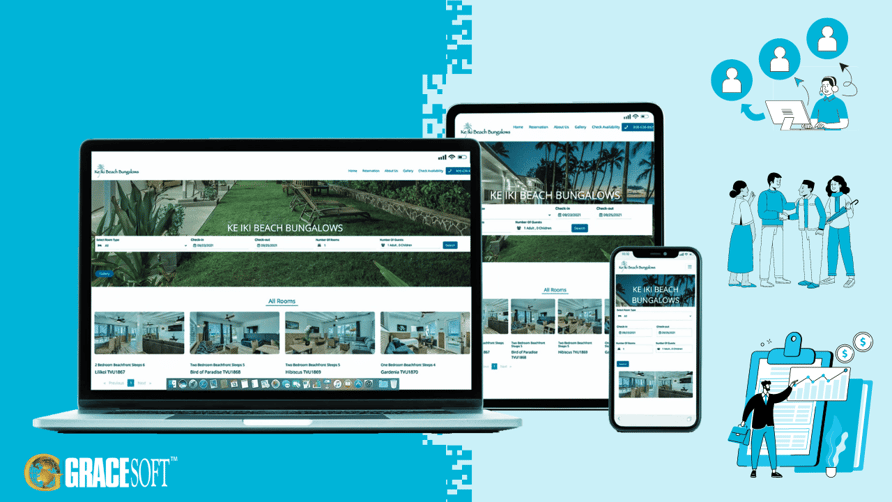
What is hotel booking engine software?
A hotel booking engine is a software tool that is specifically designed to allow guests to book rooms and services directly from a hotel's website and social media pages. This eliminates the need for intermediaries such as travel agencies or online travel agencies (OTAs), allowing hotels to have greater control over their inventory, pricing, and customer relationships. These engines are user-friendly and provide a straightforward and secure booking experience for travellers.
Importance of a hotel booking engine
A hotel booking engine is more than just a tool to facilitate online reservations. It is a powerful asset that can drive direct bookings, increase conversion rates, and boost your hotel's revenue. With the rise of online travel agencies (OTAs) and the ever-increasing competition in the hospitality industry, having a strong online presence is crucial. A hotel booking engine allows you to take control of your online distribution channel and reduce reliance on third-party platforms.
One of the key advantages of a hotel booking engine is the ability to offer personalized and targeted promotions to your guests. By capturing data on their preferences and behaviour, you can tailor your offerings to meet their specific needs. This not only enhances the guest experience but also increases the chances of repeat bookings and customer loyalty.
Furthermore, a hotel booking engine provides real-time availability and pricing information, ensuring that your guests have access to the most up-to-date information. This eliminates the risk of overbooking and allows you to optimize your room inventory and revenue management strategies. With a booking engine, you can also easily manage and modify your rates, offers, and packages, giving you the flexibility to adapt to changing market conditions.
Factors to consider when choosing a hotel booking engine
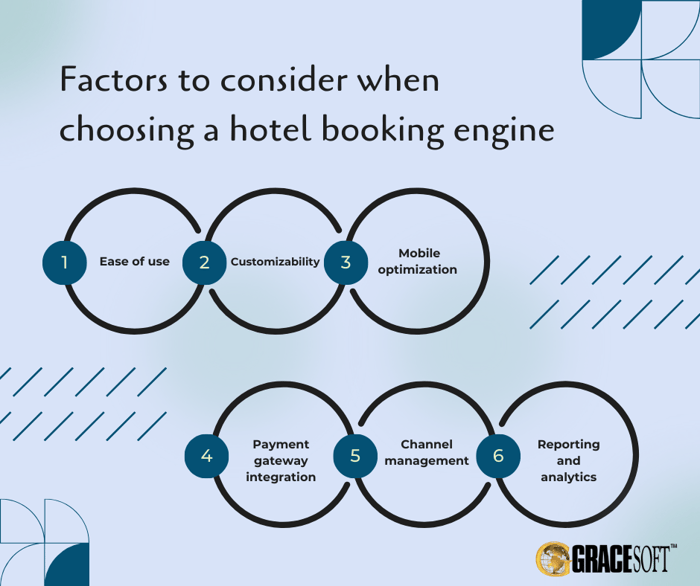
When selecting a hotel booking engine, it's important to consider various factors to ensure that you choose the right one for your property. Every hotel has its own distinct requirements and objectives, which must be taken into account. By considering these factors, you can select a booking engine that aligns with your specific needs and objectives.
1. Ease of use: The booking engine should be user-friendly, both for your staff and your guests. It should have a simple and intuitive interface that allows for easy navigation and quick bookings. Look for a system that offers a seamless and hassle-free booking process, minimizing the risk of abandoned reservations.
2. Customizability: Your booking engine should be customizable to reflect your hotel's branding and design. It should seamlessly integrate with your website, providing a consistent user experience for your guests. Look for a booking engine that offers flexible templates and customization options to ensure that it aligns with your brand identity.
3. Mobile optimization: In today's mobile-first world, it is essential to have a booking engine that is optimized for mobile devices. A large percentage of bookings are made on smartphones and tablets, so it is crucial that your booking engine provides a seamless mobile experience. Look for a system that offers a responsive design and mobile-specific features such as click-to-call and mobile payments.
4. Payment gateway integration: Your booking engine should support multiple payment gateways, allowing your guests to choose their preferred method of payment. Look for a system that offers secure and PCI-compliant payment processing, ensuring the safety of your guests' financial information. Integration with popular payment gateways such as PayPal and Stripe is a plus.
5. Channel management: If you are managing multiple distribution channels, it is important to choose a booking engine that offers robust channel management capabilities. Look for a system that allows you to easily manage your inventory, rates, and availability across all channels from a single dashboard. This will save you time and effort, while also minimizing the risk of overbooking.
6. Reporting and analytics: A good booking engine should provide comprehensive reporting and analytics features. Look for a system that offers real-time data on your bookings, revenue, occupancy rates, and guest demographics. This will enable you to make data-driven decisions and optimize your marketing and revenue management strategies.
By considering these factors, you can narrow down your options and choose a hotel booking engine that meets your specific needs and objectives. Remember, the right booking engine can make a significant difference in your hotel's success.
Benefits of a hotel booking engine
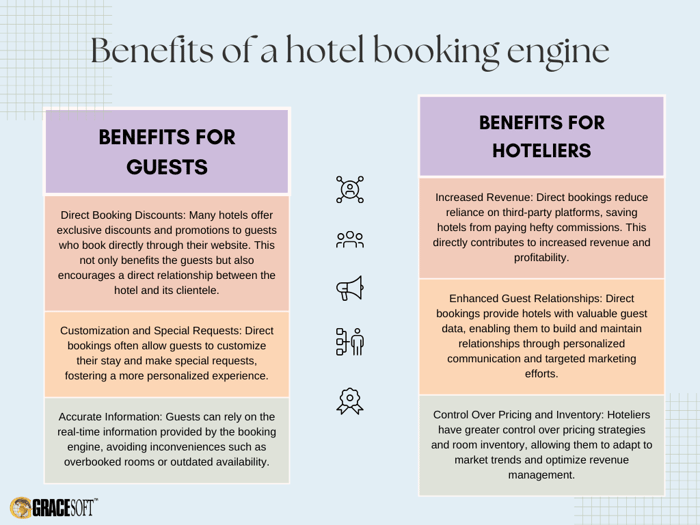
Types of hotel booking engines
When it comes to hotel booking engines, there are several types to choose from. Each type has its own set of features and functionalities, catering to different types of properties and business models. Understanding the different types of booking engines will help you determine which one is the best fit for your hotel.
1. Integrated booking engine: An integrated booking engine is built into your property management system (PMS). It provides seamless integration with your other hotel systems, such as front desk operations, housekeeping, and revenue management. This type of booking engine offers a high level of automation and efficiency, as it eliminates the need for manual data entry and synchronization.
2. Stand-alone booking engine: A stand-alone booking engine is a separate system that is not tied to your PMS. It can be integrated with your website and other distribution channels, allowing for real-time availability and pricing updates. This type of booking engine offers flexibility and independence, as it can be used with any PMS or property management software.
3. Global distribution system (GDS): A GDS is a network that connects travel agents and online travel agencies (OTAs) to hotels and other travel providers. It allows for the distribution of hotel inventory and rates across multiple channels. Some GDS providers also offer booking engine solutions that can be integrated with your website. This type of booking engine is particularly beneficial for hotels targeting the corporate and travel agency markets.
4. Channel manager with booking engine: A channel manager with a booking engine is a comprehensive solution that combines channel management and online booking capabilities. It allows you to manage your inventory, rates, and availability across multiple channels, while also providing a booking engine for direct reservations. This type of booking engine is ideal for hotels that rely on a mix of direct and third-party bookings.
5. Meta-search engine integration: Meta-search engines, such as Google Hotel Ads and TripAdvisor, allow users to compare hotel prices and make direct bookings. Some booking engines offer integration with meta-search engines, allowing your hotel to appear in search results and drive direct bookings. This type of booking engine is particularly beneficial for hotels looking to increase their online visibility and attract more direct bookings.
By understanding the different types of booking engines, you can choose the one that best suits your hotel's needs and objectives. Consider factors such as integration capabilities, automation, and target market when making your selection.
Popular hotel booking engines in the market
When it comes to hotel booking engines, there are several popular options available in the market. Each booking engine has its own set of features, pricing, and target market. Here are some of the most popular booking engines:
1. Booking.com: Booking.com is one of the largest online travel agencies (OTA) in the world. It offers a booking engine solution that allows hotels to receive direct bookings from their website. Booking.com's booking engine is known for its user-friendly interface, real-time availability updates, and extensive marketing reach.
2. Expedia: Expedia is another leading OTA that offers its own booking engine solution. Expedia's booking engine provides real-time availability and pricing updates, as well as seamless integration with their partner sites. Expedia also offers a wide range of marketing and distribution services to help hotels increase their visibility and reach.
3. Sabre: Sabre is a global distribution system (GDS) that connects travel agents and online travel agencies (OTAs) to hotels and other travel providers. Sabre's booking engine solution allows hotels to distribute their inventory and rates across multiple channels. Sabre is particularly beneficial for hotels targeting the corporate and travel agency markets.
4. SiteMinder: SiteMinder is a popular channel manager with a booking engine solution. It allows hotels to manage their inventory, rates, and availability across multiple channels, while also providing a booking engine for direct reservations. SiteMinder offers a user-friendly interface, real-time updates, and seamless integration with other hotel systems.
5. GraceSoft Easy Innkeeping: GraceSoft Easy Innkeeping is an all-in-one hotel management solution that includes a booking engine. GraceSoft' booking engine is known for its simplicity, customization options, and mobile-friendly design. GraceSoft also offers a range of other features, including channel management, property management, and Guest management.
These are just a few examples of popular booking engines in the market. When choosing a booking engine, it is important to evaluate the features, pricing, and customer support offered by each provider. Consider factors such as your hotel's size, target market, and specific requirements when making your selection.
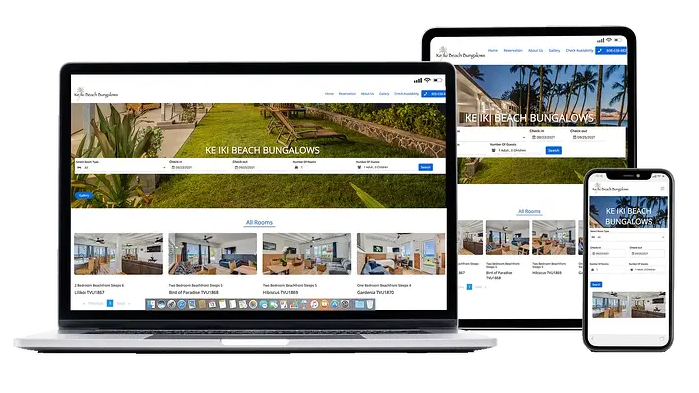
How to integrate a hotel booking engine into your website
Integrating a hotel booking engine into your website is a crucial step in maximizing your direct bookings. A seamless integration ensures that your guests have a smooth and hassle-free booking experience. Here are the steps to integrate a booking engine into your website:
1. Choose a booking engine provider: Select a booking engine provider that meets your hotel's specific needs and objectives. Consider factors such as features, pricing, and customer support when making your selection.
2. Provide necessary information: Provide the necessary information to your booking engine provider, such as your hotel's name, logo, room types, rates, and availability. This will allow them to set up your booking engine and ensure accurate and up-to-date information.
3. Customize the booking engine: Customize the look and feel of your booking engine to reflect your hotel's branding and design. This includes adding your hotel's logo, choosing colors and fonts, and customizing the layout. Some booking engine providers offer.
Tips for optimizing your hotel booking engine for conversions
When it comes to choosing a hotel booking engine, one of the most important factors to consider is its ability to convert website visitors into paying guests. Here are some tips to optimize your hotel booking engine for conversions:
1. User-friendly interface: A user-friendly interface is crucial for a smooth booking experience. Make sure the booking engine has a clean and intuitive design that allows guests to easily navigate through the booking process. The fewer steps and clicks required to complete a reservation, the better.
2. Mobile responsiveness: With the increasing number of people using mobile devices to make travel arrangements, it's essential that your booking engine is mobile-responsive. This means it should adapt seamlessly to different screen sizes and provide a seamless booking experience on smartphones and tablets.
3. Clear and compelling calls-to-action: Your booking engine should have clear and compelling calls-to-action that encourage visitors to make a reservation. Use persuasive language and highlight the benefits of booking directly through your website, such as exclusive discounts or perks.
4. Trust and security: Guests need to feel confident that their personal and payment information is safe when making a reservation. Ensure that your booking engine is equipped with the latest security measures, such as SSL encryption, to protect sensitive data. Display trust badges and customer reviews to build trust with potential guests.
5. Personalization: Personalization is key to enhancing the guest experience and increasing conversions. Look for a booking engine that allows you to offer personalized recommendations based on guest preferences and past bookings. This can include suggesting room upgrades, promoting special offers, or recommending nearby attractions.
6. Integration with other systems: A hotel booking engine that seamlessly integrates with your property management system (PMS)and other software solutions is essential for efficient operations. This integration enables real-time availability updates, automatic reservation syncing, and better management of guest data.
By implementing these optimization strategies, you can significantly improve the conversion rate of your hotel booking engine and increase direct bookings.
Best practices for managing a hotel booking engine
Choosing the right hotel booking engine is only the first step towards maximizing your online bookings. To ensure its success, you need to adopt best practices for managing your booking engine. Here are some tips to help you make the most of your investment:
1. Regular updates and maintenance: Keep your booking engine up to date with the latest software updates and security patches. Regularly test the booking process to ensure everything is functioning correctly and fix any issues promptly. Provide ongoing training to your staff to ensure they are familiar with the booking engine's features and functionalities.
2. Monitor and analyze performance: Track the performance of your booking engine by regularly reviewing key metrics such as conversion rate, average booking value, and abandonment rate. Analyze the data to identify trends and areas for improvement. Use A/B testing to experiment with different layouts, designs, or pricing strategies to optimize conversion rates.
3. Offer incentives for direct bookings: Encourage guests to book directly through your website by offering incentives such as exclusive discounts, free upgrades, or loyalty rewards. Promote these incentives prominently on your website and within the booking engine to entice guests to bypass third-party booking platforms.
4. Provide exceptional customer support: Make sure you have a dedicated support team available to assist guests with any issues or questions they may have during the booking process. Promptly respond to inquiries and provide personalized assistance to enhance the overall guest experience.
5. Leverage guest data: Your booking engine should provide you with valuable guest data that can be used to personalize future marketing efforts. Use this data to send targeted email campaigns, create personalized offers, and improve guest loyalty programs.
6. Stay up to date with industry trends: The hospitality industry is constantly evolving, and new technologies and trends emerge regularly. Stay informed about the latest developments in hotel booking engines and adopt new features or functionalities that can give you a competitive edge.
By following these best practices, you can effectively manage your hotel booking engine and maximize its potential to drive direct bookings and increase revenue.
Conclusion
Choosing the best hotel booking engine for your property is a critical decision that can greatly impact your hotel's success. By considering factors such as user-friendliness, mobile responsiveness, trust and security, personalization, and integration capabilities, you can make an informed choice that aligns with your hotel's specific needs.
Once you've selected a booking engine, it's important to optimize it for conversions by ensuring a user-friendly interface, mobile responsiveness, clear calls-to-action, trust and security, and personalization. Regularly monitor and analyze its performance, offer incentives for direct bookings, provide exceptional customer support, leverage guest data, and stay up to date with industry trends to maximize its effectiveness.
Remember, the right booking engine is not a one-size-fits-all solution. Consider your hotel's unique requirements and goals, and choose a booking engine that aligns with your brand and enhances the guest experience. With the right hotel booking engine in place, you can attract more direct bookings, increase revenue, and stay ahead of the competition.
You May Also Like
These Related Stories

The Ultimate Guide to Hotel Front Desk Software
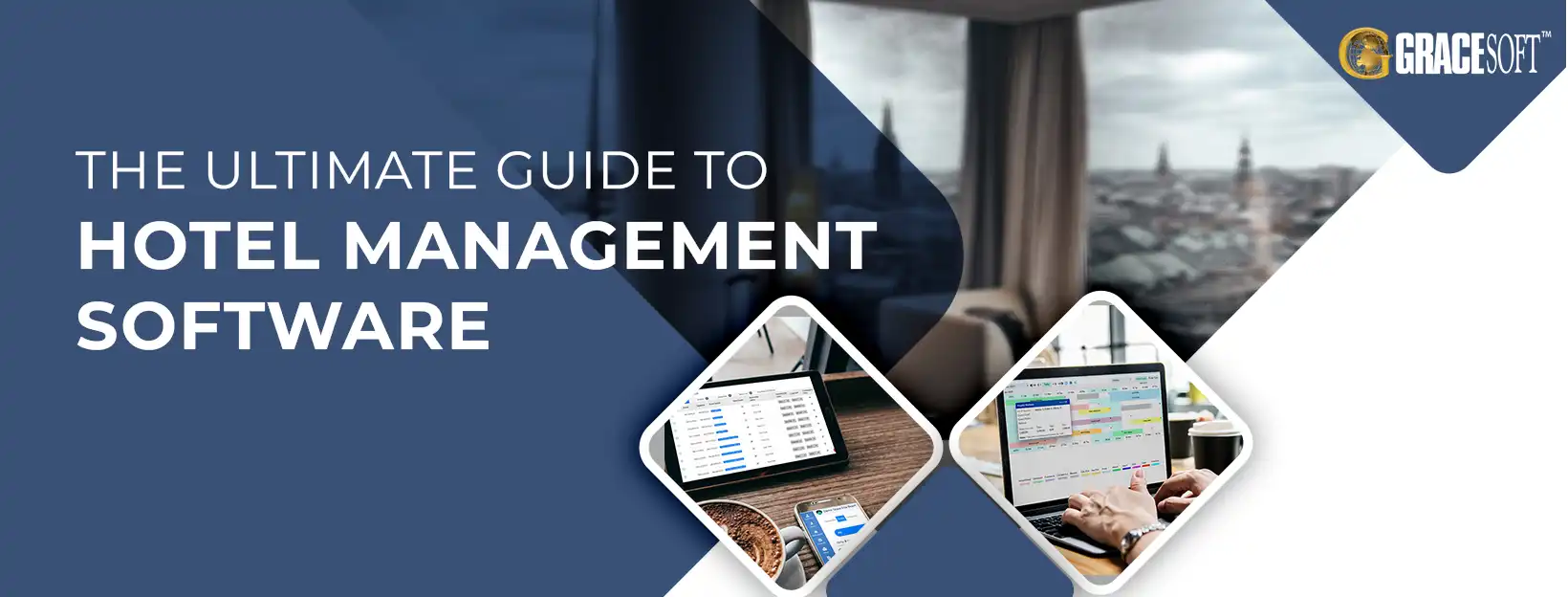
The Ultimate Guide to Hotel Management Software
%20(1).jpg)

No Comments Yet
Let us know what you think